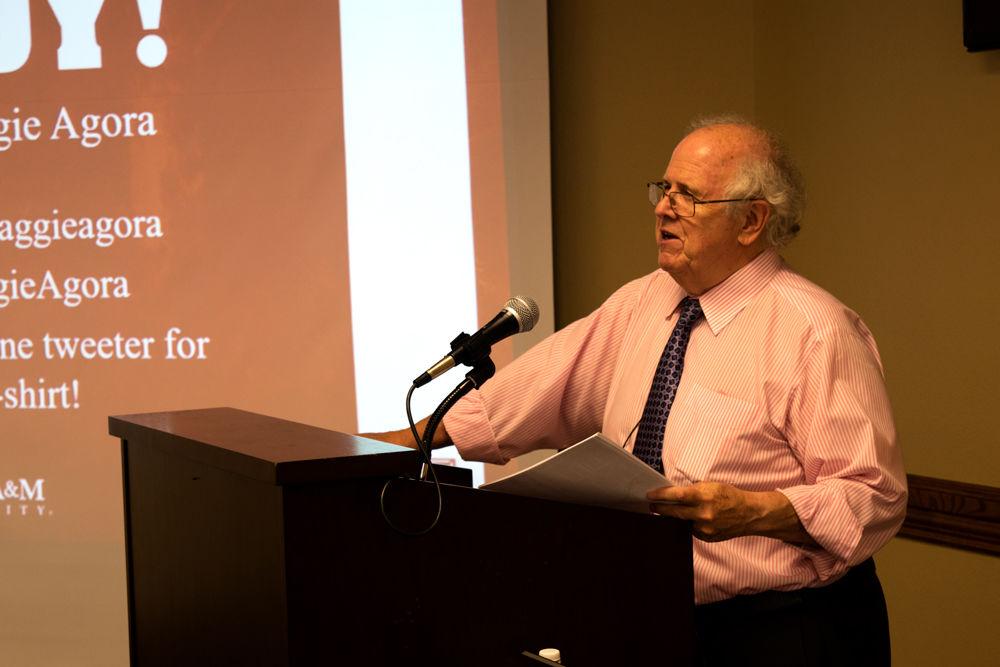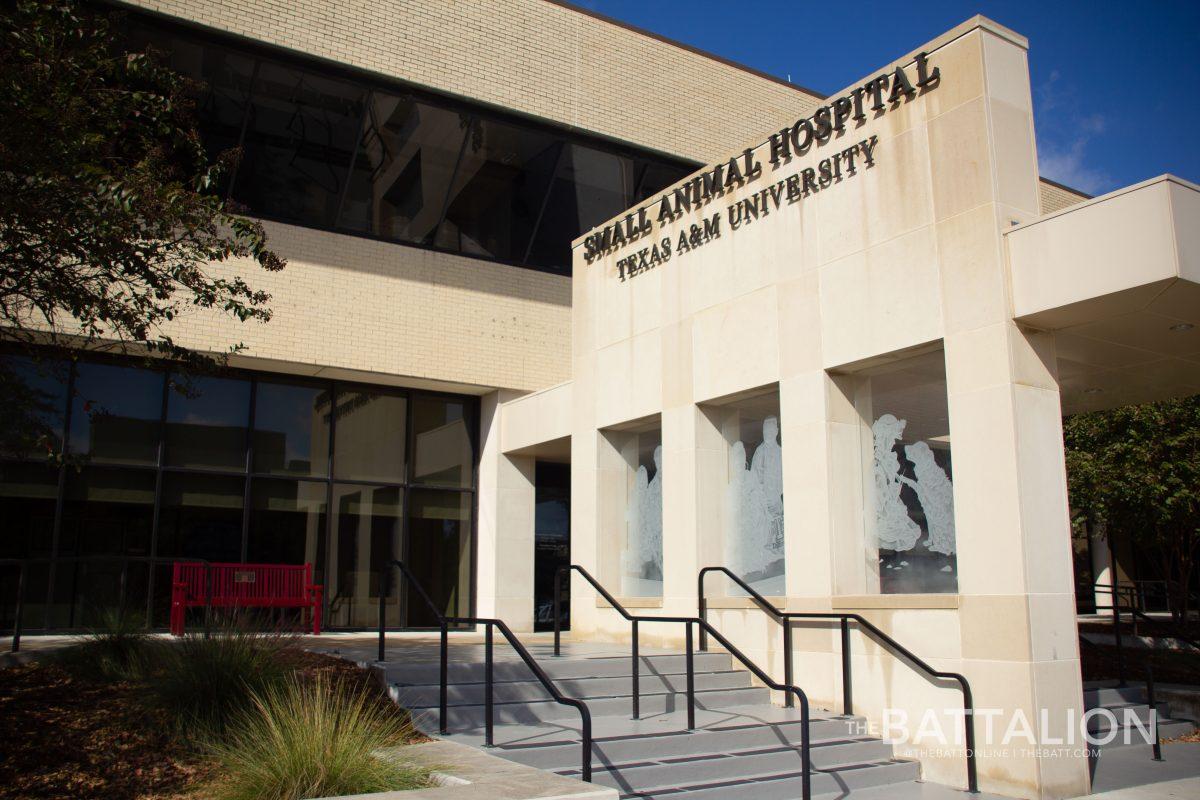Standing in Rudder Tower, the building named after his former rival, award-winning journalist and Aggie Tom DeFrank told the story of The Battalion’s censorship from Texas A&M administration during his time as an editor exactly 50 years ago on the birthday of the university.
DeFrank is currently a contributing editor for the National Journal and was the White House correspondent for Newsweek. DeFrank has covered every president since President Lyndon B. Johnson, and has written a book on President Ford titled “When I’m Gone.”
DeFrank was the speaker during the latest Aggie Agora session, a seminar and speaker series meant to educate students and community members willing to come. DeFrank’s speech focused on his time at The Battalion dealing with his advisor, Jim Lindsey, and James Earl Rudder, the 16th president of Texas A&M University, for articles depicting the university in a non-flattering light. The events eventually led to DeFrank being fired from The Battalion.
DeFrank said he couldn’t imagine his situation occurring with present day student media, especially after viewing recent issues of The Battalion.
“It’s quite a tale, and by today’s standards it seems like a tale from another civilization,” DeFrank said. “It’s hard to believe that such authoritarian, paranoid, unacademic, undemocratic and, in my view, unamerican behavior was ever to rule at this very great institution.”
DeFrank cited Lindsey censoring or getting upset several articles by The Battalion at the time, including articles about the cancelling of Johnny Cash’s performance on account of drug charges as well as an article concerning A&M soliciting graduate students for money, even though they still attended the university.
Rudder punished and criticized the newspaper, wanting it to serve as a supplement to A&M’s good efforts, according to DeFrank.
“I still hear him say, ‘Tommy, we do not air our dirty linen in public.’ That of course was his mantra and he enforced it with an iron fist,” DeFrank said.
For his resistance to being censored and controlled, including a letter from his then editor-in-chief titled “The Situation of The Battalion,” DeFrank was fired from the publication by the university. Rudder also wouldn’t shake his hand at DeFrank’s graduation, despite his good grades and accomplishments.
Despite his back-and-forth with Rudder, including Rudder believing that students shouldn’t have the last word in any argument, DeFranks said he still respects him as a person.
“In a speech at Sam Houston State…I said of Mr. Rudder, ‘He seems to think the world is one big infantry, and he’s the commander.’ And it was true then and it was true now, but I regret it,“ DeFrank said. “There was no need to make the dispute personal. I never took it personally, I still don’t.”
The article about conflicting political groups debating that was censored by his advisor will be put on display in Cushing Library, as a donation from DeFrank. University Archivist Greg Bailey said it will be a significant piece of A&M history to have on campus.
“We don’t censor anything here, and we don’t have a lot to document that situation,” Bailey said. “We want a full picture of what was going on at the time.”
Aggie Agora director Jennifer Mercieca said she invited DeFrank to speak to get a perspective on free speech.
“We wanted to give him the opportunity to tell his story,” Mercieca said. “It speaks about not only free speech on campus, but free speech in the world.”










